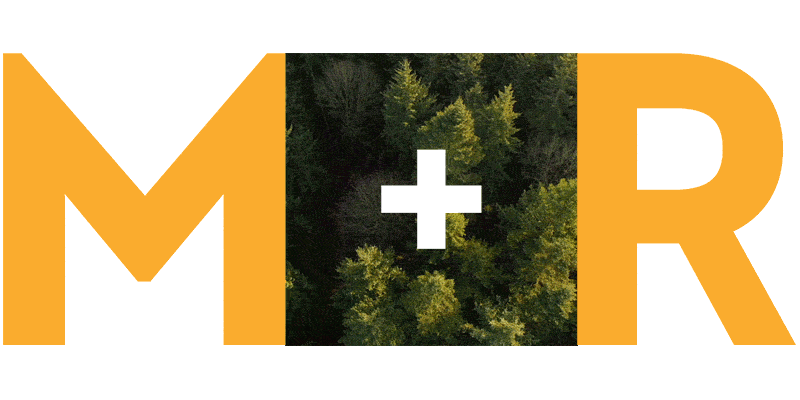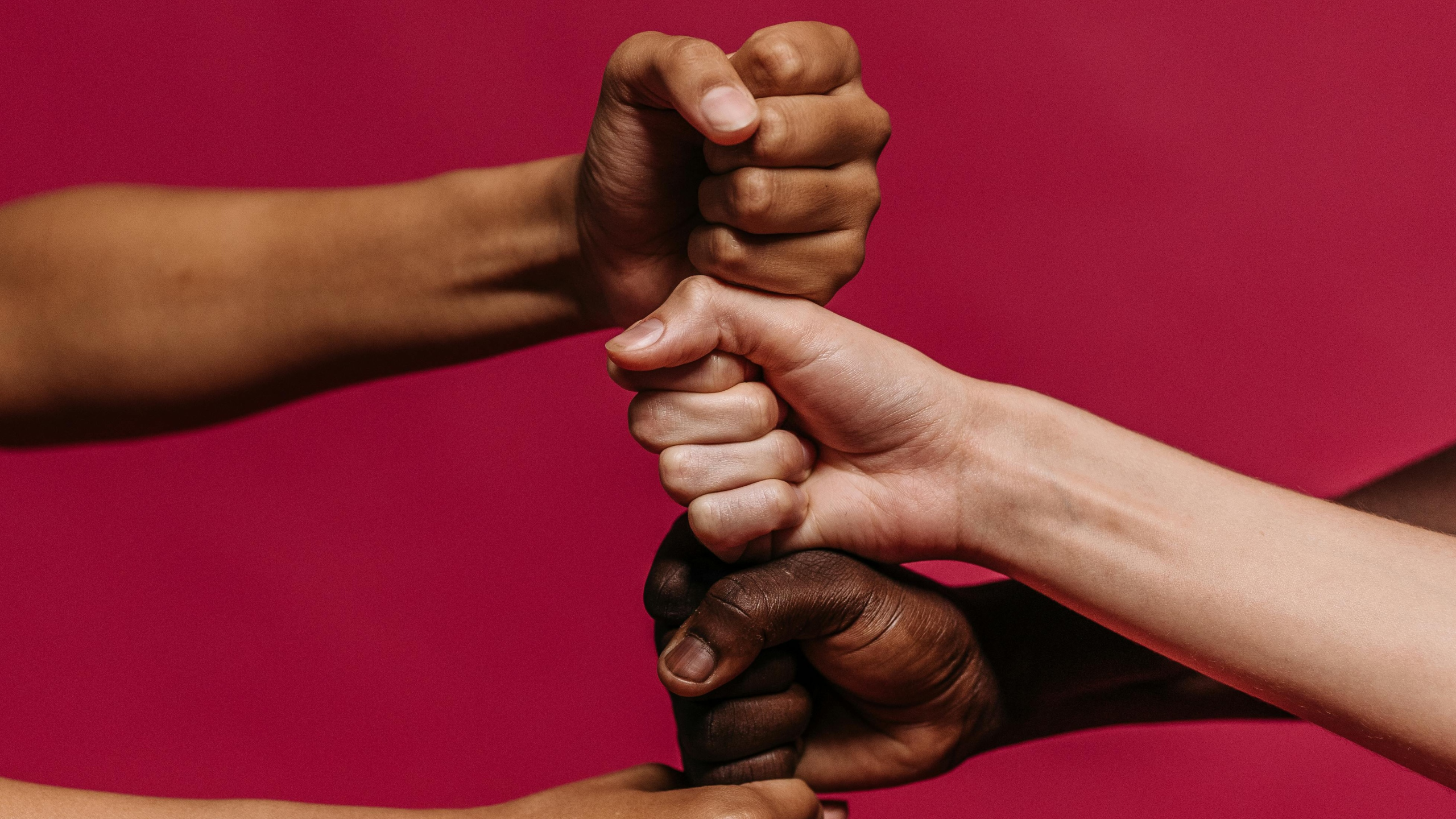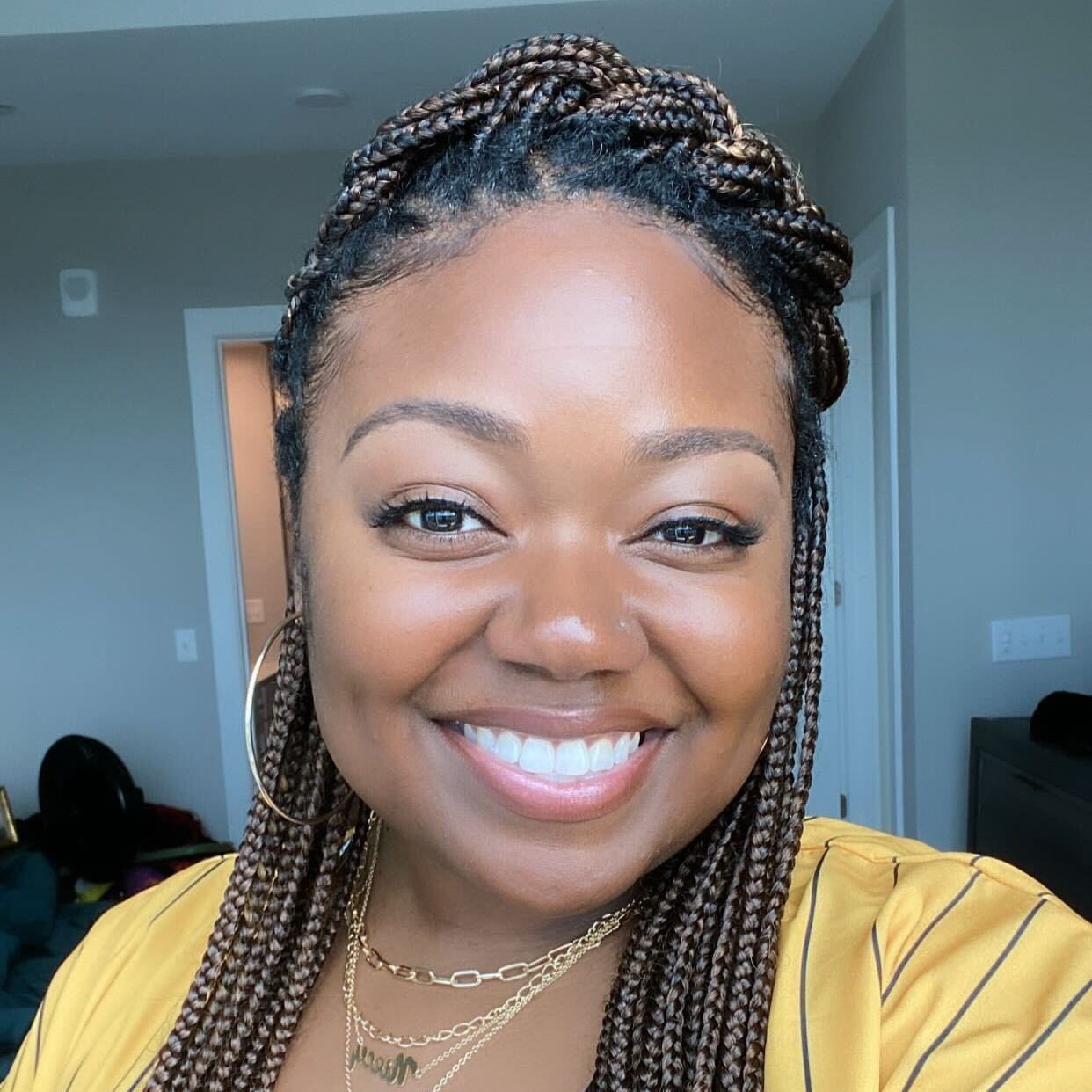Read Time: 7 mins
At M+R, we like to think of ourselves as a progressive firm, and we are! We work with mission-driven clients, we care deeply about justice and equity, we’re not afraid to speak our minds, and we talk about our values openly and often. But, one of the sneakiest traps for companies like ours, companies that want and try to do the right thing, is the belief that we already know how. That we’ve done the work. Gone to the trainings. Hired the right folks. Checked the right boxes. We’ve got this.
The truth? We don’t. And we never will.
Equity and belonging aren’t destinations. They’re evolving, ongoing practices. Cultures shift. Languages change. Movements grow. If we’re not actively learning and adjusting, we risk standing still while the world moves forward without us.
That’s why progressive and values-driven organizations like ours must make space for continuous learning, and why that learning must be rooted in equity and belonging. We’re learning — sometimes the hard way — that it’s not about perfection. It’s about staying open, curious, and willing to grow. It’s about making sure our values show up in practice, not just in messaging.
As one of the people leading this work at M+R, I spend a lot of time thinking about what it really takes to build a culture rooted in equity and belonging. So, in the interest of vulnerability and transparency, I want to share how we’re thinking about building in space for learning at M+R.
Why Continuous, Equity-Centered Learning Matters
Equity work is people work, and people, communities, and cultures are always in motion. What we understood about power, inclusion, and anti-racism five years ago isn’t what we understand now, and what we understand today certainly won’t be enough ten years from now.
Centering learning helps us adapt to change. It keeps our values alive, not frozen in time, and provides a framework for reflection, recalibration, and improvement.
In the nonprofit and progressive world, this is especially important. Our missions often demand justice, but are our internal cultures keeping up with that demand? Are we leading with humility? Are we making space to ask important questions like, “Where are we still falling short?” and “What don’t we see yet?” And no, adding another DEI book to the #officereadz chat isn’t enough. 🥴
At M+R, one example of this has been how we talk about feedback. We’ve learned that traditional feedback approaches can land differently across identities and experiences, often undermining a sense of belonging for staff from marginalized groups. In the past few years, we’ve shifted away from using the terms “positive” and “negative” feedback, and instead use “strength-based” and “growth-based” feedback. We no longer frame feedback as “negative,” because our philosophy is that all feedback should support learning and thriving, rather than reinforcing power dynamics or deficit-based thinking.
This simple language shift helps foster a more equitable feedback culture, one where everyone can engage in growth conversations with trust and dignity. It’s taken time and intention to make this change stick, but we have embedded the new language into our onboarding, supervision academy, and performance review trainings. Now, it’s part of how we talk about feedback across the firm.
Continuous, equity-centered learning helps guard against performative allyship. It pushes us to move beyond intentions and into impact. And it reminds us that living our values is a process, one that requires mistakes, reflection, accountability, and courage.
Rootwork: Learning in Practice
At M+R, we’ve been asking ourselves what it really looks like to build learning into the fabric of our firm. One step we’ve taken is launching a new internal learning program called Rootwork.
We designed Rootwork not because we had it all figured out, but because we didn’t. We’re aiming to create intentional space for staff to grow their skills, stretch their thinking, and connect the dots between values and action. The program offers two tracks: one for managers and one for non-managers. Both invite staff to explore how equity and belonging manifest in their everyday work, including meetings, decision-making, team dynamics, and client relationships.
We’ve already seen small moments of this in action with a recent management learning cohort. A staff member shared that while they were very familiar with AEI (anti-racism, equity, and inclusion) concepts, they often struggled to clearly apply them in their day-to-day work. The program gave them space to talk through real scenarios and get concrete examples of how to approach specific situations with an equity lens, something they hadn’t always known how to do, even with a strong foundation of knowledge. This is where knowledge meets application, and giving staff the tools to bridge that gap is a crucial part of building real equity and belonging in progressive spaces.
Culture doesn’t transform overnight, and we’re hoping that the conversations we’re having are planting the seeds for meaningful shifts over time and that’s the kind of learning culture we want to build.
How Learning Creates a Culture of Belonging
One thing is clear: investing in learning like this says, loud and clear, we’re not done. We’re listening. We’re learning. And we always will! Structured learning is helping bridge knowledge gaps, deepen trust, and build confidence to have honest, sometimes messy, but ultimately important conversations.
And most importantly, learning is helping us move equity work from theory to practice. It creates space for our people to reflect on how power and inclusion show up in their specific roles, regardless of whether they’re hiring staff, fundraising for a cause, or shaping team culture.
There’s another thing that is happening for M+R as a result of this learning environment: when it works it resonates with staff but also with the clients and communities we serve. When our company models humility, growth, and a genuine commitment to equity, it can strengthen trust and relationships externally. I believe communities notice when values are reflected not just in words, but in how our people learn and lead. After all, belonging shows up in how you move, not just how you brand.
This kind of learning takes many forms at M+R. Maybe it’s building in an inclusive warm-up into our team meetings. It might be providing managers with tools to give feedback through an anti-racist lens. We’re also trying to make space for staff to identify when interactions feel harmful or uncomfortable to them and know they’ll be met with care. Again, our goal isn’t a perfect plan. It’s a living culture where learning is visible, ongoing, and shared across the organization.
A Small Step to Make it Real
Of course, this work isn’t easy: staff are juggling lots of demands daily, our clients are facing critical threats, there’s a new unthinkable development happening EVERY DAY… having conversations about equity can be messy and uncomfortable in the midst of all this. But, when has that ever stopped mission-driven organizations from doing the hard work? I believe that the organizations that move forward are the ones that choose to keep showing up, even when it’s imperfect… especially when it’s imperfect.
At M+R, we’re still figuring this out. This work is uncomfortable at times, especially when we’ve worked hard to be inclusive and justice-oriented. I don’t say things like “we’re not perfect” or “we still have a lot to learn” because I’m a fan of self-loathing (quite the contrary, actually, once you get to know me 😉). I say them because this work demands honesty about where we are, where we fall short, and where we need to keep growing. Equity and belonging aren’t about being flawless; they’re about being present… accountable…willing to keep going. As we do this work, we’re asking ourselves some key questions to guide our own learning, and perhaps they’ll spark conversation in your organization too:
- Where do we make space to grow?
- Are we on autopilot or actively taking moments to pause and evolve?
- How are we supporting our people to reflect, learn, and practice?
- Are we living our values or just naming them?
Learning isn’t the whole answer. But it is an essential part of building a workplace and a world where equity and belonging are more than words. We’re choosing to stick with it.



